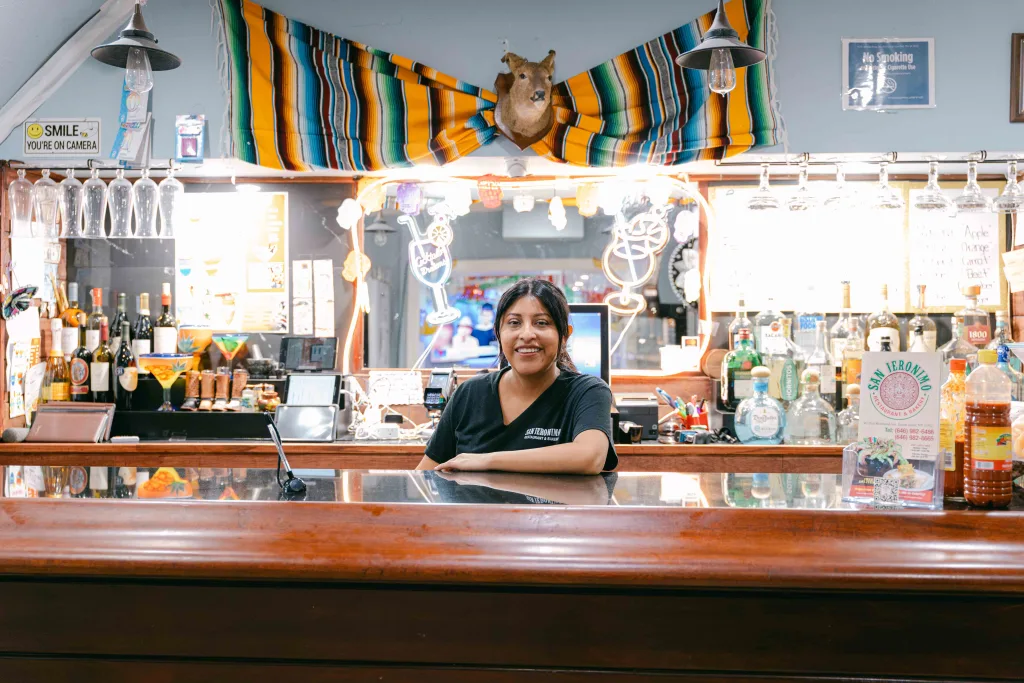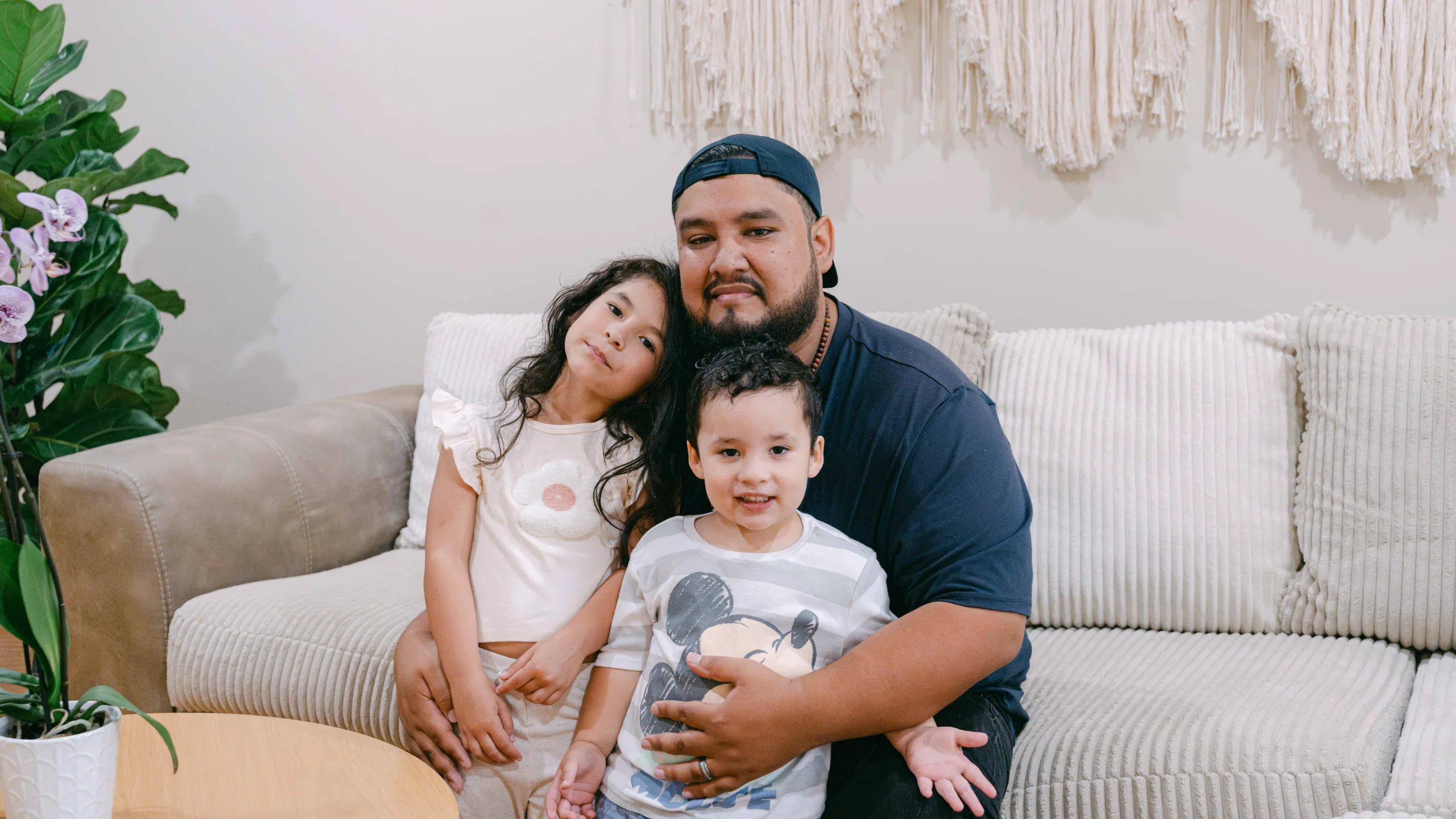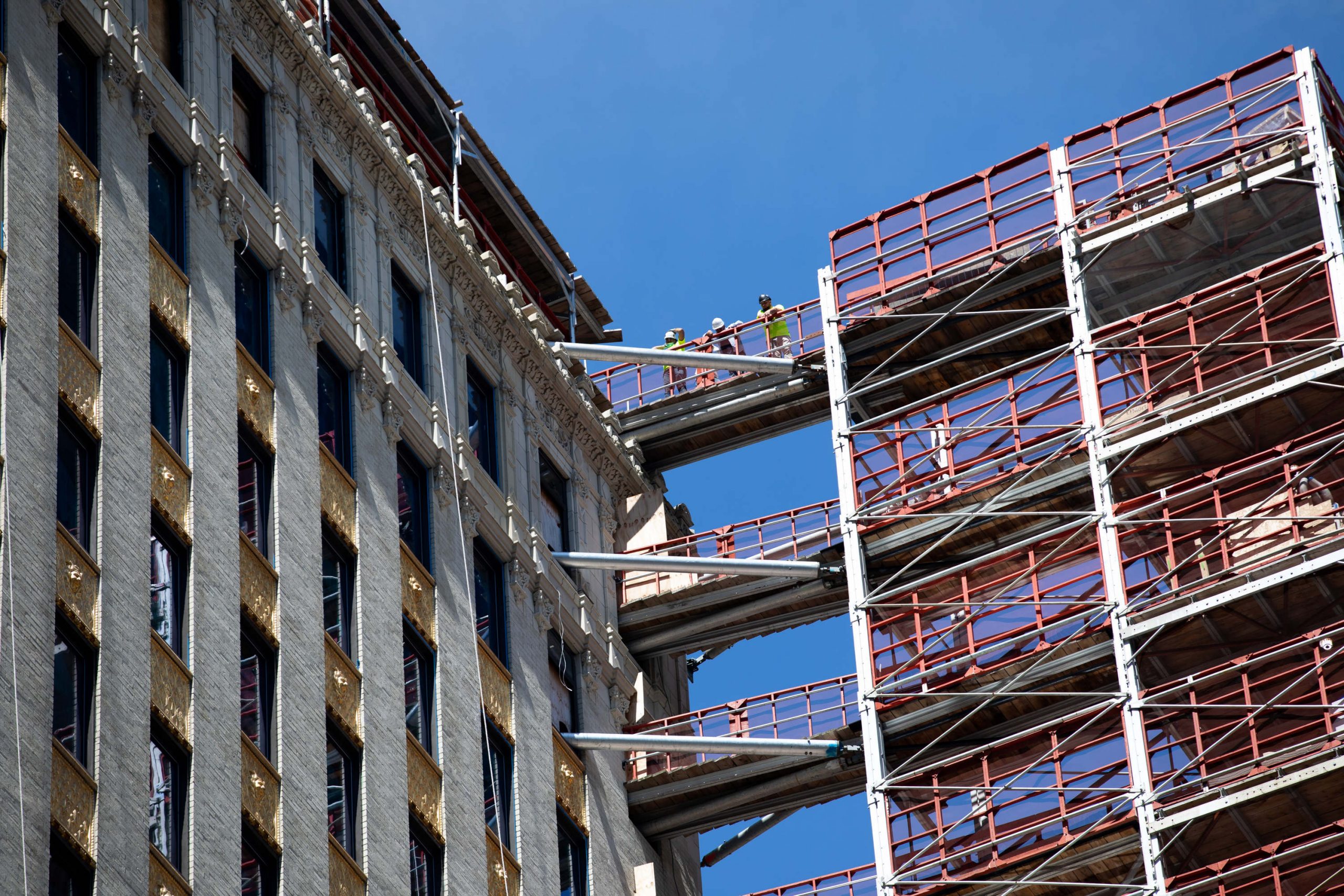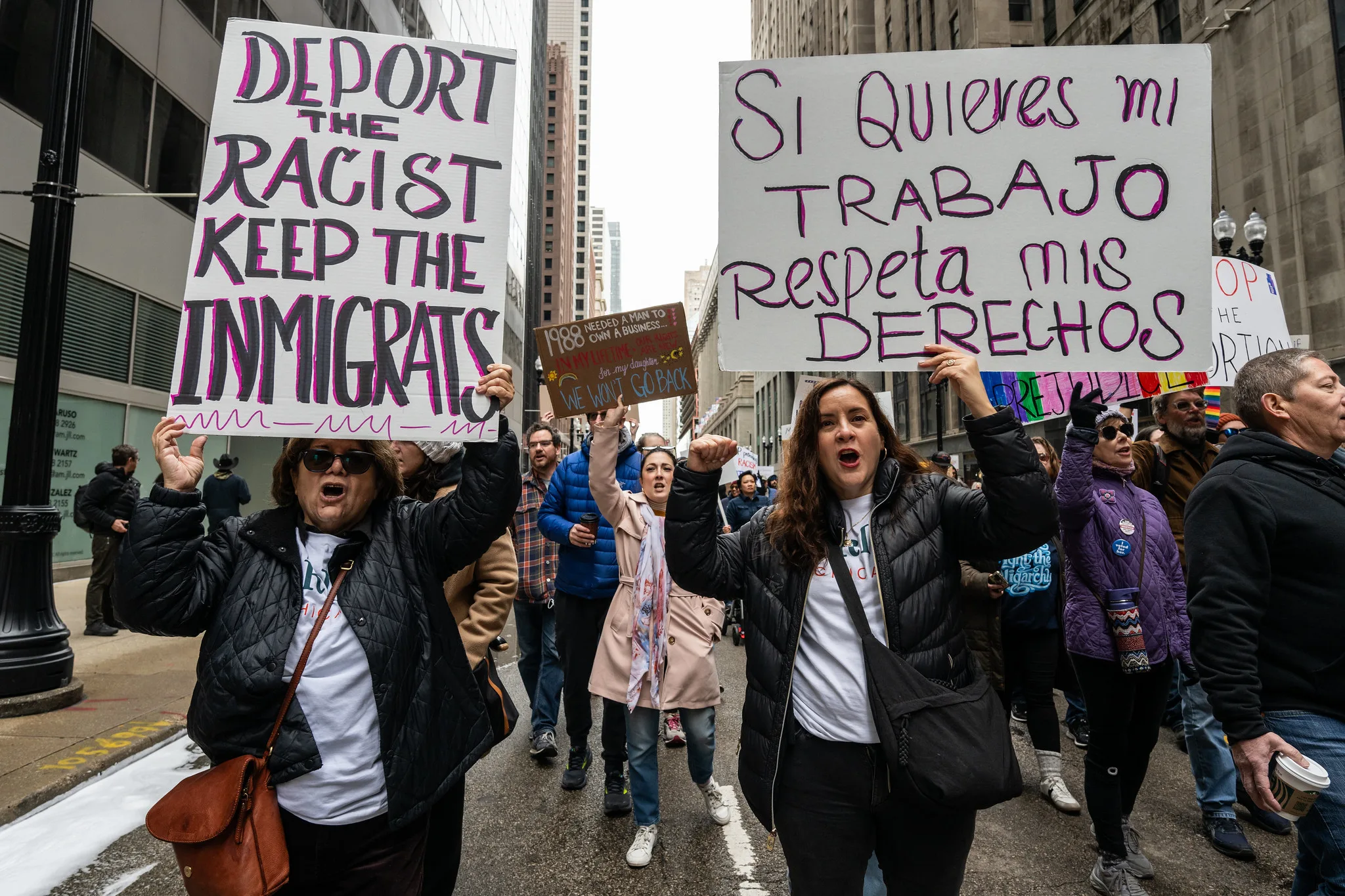When Angel Reyes Rivas arrived home on a recent Wednesday afternoon in Long Island, his children Zoe and Seth ran to welcome him home from work. They hugged him at the entrance, their laughter filling the hallway at his sight. Their golden retriever, Canela, joined them shortly after, wagging her tail in a flurry of excitement before lying on the floor, asking for stomach rubs. Later, they all played the viral children’s game Roblox on the iPad before eating dinner. Reyes Rivas, 34, says he cherishes these moments with his family.
Sixteen years ago, his mother was deported to Peru when he was 18. She has not met his children, and Reyes Rivas has been unable to see her due to his status as a beneficiary of the Deferred Action for Childhood Arrivals (DACA) program. The program provides temporary protection from deportation to certain undocumented immigrants brought to the country as children, but it does not confer legal status. Traveling opportunities outside the country are also limited. Those with DACA status are commonly referred to as “Dreamers.”
The separation from his mother has fueled his activism to push for a path to legalization for Dreamers. However, as the program heads to the courts once again today, Reyes Rivas said a negative outcome could jeopardize his ability to work and remain in the United States. “As long as there is a possibility, I feel we need to talk about the difficult possibilities. It’s a conversation I don’t want to have but, as the head of the household, I am responsible for my kids.”
Reyes Rivas, who works as an organizer at Make The Road New York, an organization advocating for immigrant rights, mobilized a group of 30 people across New York to travel to New Orleans, where the oral hearing will take place. USCIS data shows that in New York, there are 21,250 DACA beneficiaries as of August 2024. “Everyone’s going to come together with all the major nonprofits, the immigrant rights nonprofits in the nation, and we’re going to gather 300 people,” he said.
Today marks the second time in less than four years that DACA heads back to the 5th U.S. Circuit Court of Appeals. A panel of judges will decide on the legality of the program, a decision that could affect the 535,000 active DACA recipients based on the latest data from USCIS. But the impact of the decision could be far greater as a study released by FWD.US estimates that 1 million U.S. citizens, like Reye’s children, live with DACA recipients in their households.
With the court’s previous decision on DACA, which deemed the program unlawful, the hearings serve as a stark reminder of how fragile their future in the U.S. is, especially amid this year’s historic presidential election that could directly impact the continuation of the program.
Also Read: How Will the 2024 Presidential Election Impact DACA?
President Barack Obama implemented the DACA program in 2012 through an executive order, giving undocumented individuals who were brought to the U.S. as children protection from deportation. Beneficiaries of the program can renew their DACA status every two years and also apply for a work permit.
Today’s oral arguments stem from a 2018 lawsuit brought by the state of Texas, the plaintiff, challenging the legality of DACA’s implementation. U.S. District Judge Andrew Hanen ruled that the program was unlawful, citing a violation of the Administrative Procedure Act, which requires a notice-and-comment period for new policies.
After Hanen’s ruling, 97,000 initial applications were halted, but renewals for the more than 650,000 beneficiaries at the time continued. In 2022, the Fifth Circuit upheld his decision but sent the case back to Hanen to review changes made to the program by the Biden Administration. In 2023, Hanen deemed Biden’s changes to the program unlawful as well.
“The hearing on October 10 will be an appeal filed by defenders of DACA, saying that this judge in Texas who found that DACA was unlawful is wrong, and that Texas doesn’t even have the right to bring the suit in the first place,” Paige Austin, supervising litigation attorney at Make The Road, told Documented. Austin, who will also be present in New Orleans, said either decision would be a win for the program.
“A decision could come the next day, or it could in six to eight months. There’s people that think a decision will come really quickly because the Fifth Circuit already considered a lot of these issues,” Austin added. “I mean, if you talk to enough people, you’ll hear every theory.”
Dreamers are exhausted of legal ping pong
It is DACA’s uncertainty that has pushed Reyes Rivas to advocate for a permanent solution for Dreamers to remain in the U.S., but, at the same time, he has had discussions with his wife should the program come to an end. “The priority would be to stay together as a family, but it is a challenge to think about it,” he said, explaining there could be a possibility of taking his kids to Peru or Colombia should he be deported like his mother. He said his children both have more opportunities in the U.S., mentioning the chance for better education as one of the reasons his mom decided to bring him to the States when he was 15. “I am also honoring the fact that my mom made that decision when I was a kid,” he said.
Also Read: New DACA Rule Not Guaranteed to Go Into Effect, Advocates Warn
Reyes Rivas has also spoken to other Dreamers in New York who have told him they are exhausted from the legal battles. “They’re tired about having to deal with DACA, being in this court, going to this court now,” he said. “Being told that it’s illegal by this court, and then waiting a year for this other court to listen to this and not knowing.”
Sarahi Marquez, 34, a DACA recipient from Staten Island, agreed. She has been in the United States since she was six and said she constantly makes decisions based on what could happen with the program. Marquez, along with her father, owns San Jeronimo, a Mexican restaurant and bakery in Staten Island’s Port Richmond neighborhood. She said she often second-guesses every investment in the restaurant because of the program’s uncertainty.

“We’re not prioritized, and it seems as though it’s not an urgent issue,” she said. “What is going to happen to my business?” She added that it was challenging to plan for more than five years at a time. The restaurant employs nearly two dozen people who rely on her to make a living. “My lease is coming up next year, for example, and I have to think about whether I want to renew. Will I have DACA? Will I be able to keep all my liquor licenses?” New York law requires applicants for liquor licenses to be U.S. citizens, permanent residents, or authorized to work in the state, which DACA permits.
According to Austin, if the Fifth Circuit decides that DACA is unlawful, the defendants will likely appeal to the Supreme Court. However, she noted that the Supreme Court is not required to take every case. “Typically, if a case is appealed before or during January, and the Supreme Court accepts it, the case would be heard that same year,” she said.
Austin emphasized that whether the Supreme Court takes the appeal does not determine if DACA recipients can continue renewing. “That depends on whether the decision holding the program unlawful remains stayed, meaning paused,” she explained. Courts have ruled DACA unlawful since 2021, but renewals have continued under the stay. “One of the big questions on everyone’s mind is, will renewals be allowed while the case moves up to the Supreme Court?”
Reyes Rivas said he hopes America “makes the right decision.” He does not know what the courts will say nor what will happen with the program in the upcoming presidency. As he played with his 3-year-old son on the living room couch, he paused. “If there is the scenario that I am put in deportation proceedings and I get deported, I will definitely figure out how to be together with my family again.”














